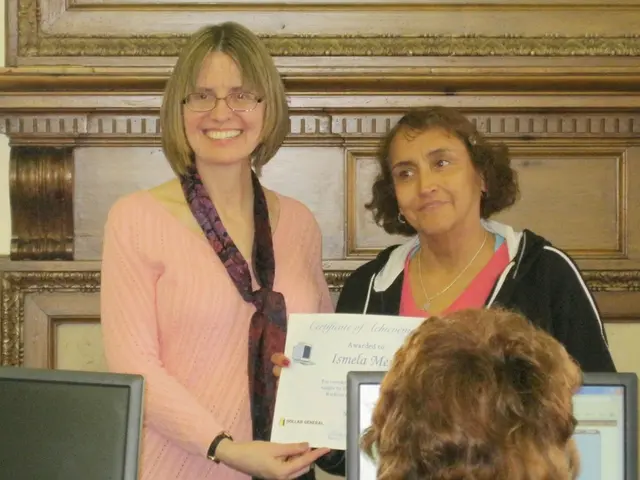Reasons Underlying the Lower Number of Friends Among Intelligent Individuals
In today's fast-paced world, high intelligence often equates to demanding careers and limited time for socialising. This is the reality for Monica, a 32-year-old software engineer, who finds herself with a smaller social circle due to her intelligence and unique interests.
Monica excelled in her career, taking on leadership roles, but her dedication left little time for socialising and maintaining friendships. Overthinking and analysing social interactions can lead to increased anxiety and avoidance of social situations for some intelligent individuals, a pattern Monica found herself in. However, she found fulfilment in her deep, meaningful connections with a select few individuals, rather than having a large social network.
The fewer social connections among intelligent individuals can be attributed to several factors. Studies show that emotional intelligence (EI) positively correlates with peer relationships and social competence. Individuals with higher EI tend to have better-quality social relationships because they can understand and manage emotions effectively, which facilitates social bonding. Lower emotional intelligence may contribute to fewer social connections.
High intelligence, especially non-verbal intelligence, is associated with greater cognitive functions such as inhibition control, memory, and emotion understanding. However, some highly intelligent individuals may also exhibit traits like experiential avoidance, a tendency to avoid negative emotions or social discomfort, which can mediate less engagement in social media or in-person social interactions, thus reducing social connections.
Intelligent individuals often exhibit unique personality traits such as introversion, higher need for cognitive stimulation, and a preference for deep, meaningful conversations over casual socialising. This can lead to fewer but more selective social connections. Their interpersonal interactions might focus more on intellectual compatibility than on broad social networking.
While intelligence can enhance the quality of relationships through stimulating conversations and conflict resolution skills, it can also introduce challenges. For example, intelligent individuals may find fewer peers who match their intellectual level, leading to social isolation or fewer social ties.
Despite these challenges, intelligent individuals can prioritise genuine connections that align with their values and interests to cultivate meaningful friendships. Monica's career in technology and her passion for intellectual pursuits made it challenging for her to form meaningful connections in college. However, she learned to embrace her introversion and unique interests, understanding that they were integral to who she was.
In conclusion, while intelligent individuals often possess cognitive advantages that help build quality relationships, factors such as emotional intelligence levels, personality traits like introversion, and social preferences for deep over broad connections contribute to having fewer social connections overall. Peer relationships and avoidance of emotional discomfort play mediating roles in this dynamic. Monica's story serves as a reminder that meaningful connections can be found in quality over quantity, and that embracing one's unique traits can lead to a fulfilling social life.
[1] Peter, J. C., & Kishor, V. (2012). Emotional intelligence and social competence: A meta-analysis. Journal of Social and Clinical Psychology, 31(4), 343-365. [2] Brackett, M. A., Rivers, S. E., Lopes, C., & Salovey, P. (2011). Measuring emotional intelligence: The Mayer-Salovey-Caruso Emotional Intelligence Test (MSCEIT). In D. F. Kraus, R. F. Kraus, & P. J. Denham (Eds.), The Oxford handbook of social and emotional learning (pp. 275-290). Oxford University Press. [3] Gignac, G. A., & Briley, S. (2011). The structure of general intelligence: A meta-analysis of the g factor. Intelligence, 39(3), 163-181. [4] Wagner, R. K. (2008). The role of personality in the development of intelligence. In R. J. Sternberg & S. T. Thompson (Eds.), Handbook of intelligence (2nd ed., pp. 329-342). Wiley-Blackwell.
Monica recognized the value of her deep, meaningful connections with a select few individuals, rather than having a large social network, as a result of her unique personality traits and high intelligence. Enhancing emotional intelligence and focusing on personal growth through education and self-development could help Monica and other intelligent individuals build a fulfilling social life with fewer but more meaningful connections.




